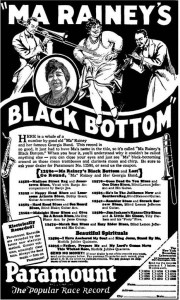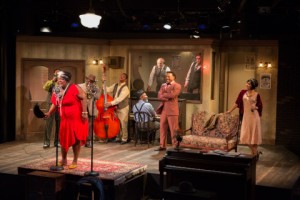One of Garner’s albums was called The Most Happy Piano, and that sums him up very nicely. As Joseph Epstein wrote of H.L. Mencken, “He achieves his effect through the magical transfer of joie de vivre.” You simply cannot listen to his best recordings without breaking out in an ear-to-ear grin. What’s more, Garner was by all accounts as likable as the music he made. As George Avakian, his producer at Columbia, recalled, “He was really like a pixie or an elf. When you split with Erroll at the end of an evening you left with a happy smile and a good feeling. No worries at all. Off to bed feeling great. That’s what Erroll did for people.”…
Read the whole thing here.



 I turned sixty on Saturday. Mrs. T and I didn’t throw a party, though. That might have been fun, but we were staying at Florida’s
I turned sixty on Saturday. Mrs. T and I didn’t throw a party, though. That might have been fun, but we were staying at Florida’s  How should I spend whatever is left of it? Cardinal Newman
How should I spend whatever is left of it? Cardinal Newman  Regular readers of this blog know the obvious answer to that question: I’ll be
Regular readers of this blog know the obvious answer to that question: I’ll be 
 In today’s Wall Street Journal drama column I review a show in Sarasota, Florida, Westcoast Black Theatre Troupe’s revival of August Wilson’s
In today’s Wall Street Journal drama column I review a show in Sarasota, Florida, Westcoast Black Theatre Troupe’s revival of August Wilson’s  Not much seems to happen in “Ma Rainey’s Black Bottom” until the end of the evening. Rainey and her band (Robert Douglas, Kenny Dozier, Patric Robinson and Henri Watkins) come to a dingy recording studio in Chicago to cut a few tunes. The musicians arrive early, sit around the rehearsal room, swap stories and share a joint. At length Rainey and her entourage show up. After a snarling who’s-in-charge-here skirmish with her manager (Stephen Emery) and the producer of the session (Terry Wells), both of whom are white, Rainey finally gets down to business, makes the records and stalks out. That’s when the bomb goes off…
Not much seems to happen in “Ma Rainey’s Black Bottom” until the end of the evening. Rainey and her band (Robert Douglas, Kenny Dozier, Patric Robinson and Henri Watkins) come to a dingy recording studio in Chicago to cut a few tunes. The musicians arrive early, sit around the rehearsal room, swap stories and share a joint. At length Rainey and her entourage show up. After a snarling who’s-in-charge-here skirmish with her manager (Stephen Emery) and the producer of the session (Terry Wells), both of whom are white, Rainey finally gets down to business, makes the records and stalks out. That’s when the bomb goes off…